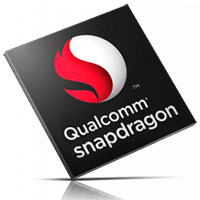
Qualcomm on Wednesday announced the Snapdragon 845 Mobile Platform, a System on a Chip built for immersive multimedia experiences including extended reality (XR), on-device artificial intelligence and high-speed connectivity.
The SoC will power next-generation Android flagship smartphones and Windows 10 notebooks based on ARM architecture.
Xiaomi reportedly will use it in its forthcoming Mi 7 flagship, to be released next year.
The SoC incorporates Qualcomm’s Spectra 280 image signal processor (ISP), its Adreno 630 visual processing subsystem, and the company’s secure processing unit (SPU), which enables improved biometrics security and user or application data key management.
The 845 supports Google’s TensorFlow and Tensorflow Lite, and Facebook’s Caffe/Caffe2 frameworks, as well as the new Open Neural Network Exchange. It also supports Google’s Android NN application programming interface.
The Importance of AI
The 845 triples improvement in overall AI performance, simplifying the taking of photos and videos and enhancing VR games, according to Qualcomm.
AI support through both versions of TensorFlow and Caffe in the 845 is its most important standout feature, noted Werner Goertz, a research director at Gartner.
“As AI moves to end devices, the Q support for TensorFlow and Caffe implementations will support the all-important inference functions of AI,” he told TechNewsWorld.
That will enable local processing of AI-enabled experiences, “without requiring the round-trip of data to the cloud and back,” Goertz said, thus reducing latency, providing resilience against network outages, and offering the option of on-device models to protect private and confidential data.
What Makes the 845 Stand Out
The 845’s machine learning and augmented reality capabilities will have the most impact, suggested Holger Mueller, principal analyst at Constellation Research.
“The race to combine the real world and the digital world as AR is on,” he told TechNewsWorld. “This is one of the closer architectures bringing together multiple Qualcomm capabilities.
Support for Tensorflow and Caffe “also makes the execution of the two most popular ML frameworks easy,” Mueller said, “opening up a lot of use cases — voice, picture recognition, video and audio augmentation, for instance.”
While the 845’s capabilities are unique, “Apple and Samsung have similar capabilities,” he noted.
The new image signal processor, the secure processing unit, and the new cache structure are the most significant changes introduced, said Jim McGregor, principal analyst at Tirias Research.
Foveation Makes For Great Pix
The SoC uses foveation, which substantially reduces power consumption, improves visual quality, and boosts XR application performance.
The advancements on the new ISP, combined with foveation, “provide capabilities beyond even some of the best camera platforms,” McGregor told TechNewsWorld.
The 845 lets consumers capture cinema-grade videos. It captures 64 times more high-dynamic range color information for video capture and playback on Ultra HD Premium displays.
Foveal tracking also helps improve power efficiency, Gartner’s Goertz remarked.
“Tracking gaze and retinal focus areas on a screen or immersive display reduces power consumption without materially impacting the user experience,” he explained. “The processor can track in real time where the user’s attention is focused, and work hard at processing the relevant images while spending less energy on other areas.”
Skimps on Power
The 845 consumes up to 30 percent less power for video capture, games, extended reality applications and graphics, which “is huge,” McGregor said.
The cache structure has increased the 845’s power efficiency, because the central processing unit block has a Level 3 cache, and each Internet protocol block has a system cache, McGregor pointed out. Now, the IP blocks “just pass pointers to the data rather than copying it from block to block or from main memory.”
Improved Security
The SPU closes some significant gaps in device security, McGregor observed.
“Most biometric solutions aren’t secure,” he said, because of “where the information is stored or how it’s processed. Having a completely secure block prevents anyone from accessing the information.”
The 845 Mobile Platform is expected to show up in commercial devices beginning in early 2018.






















































